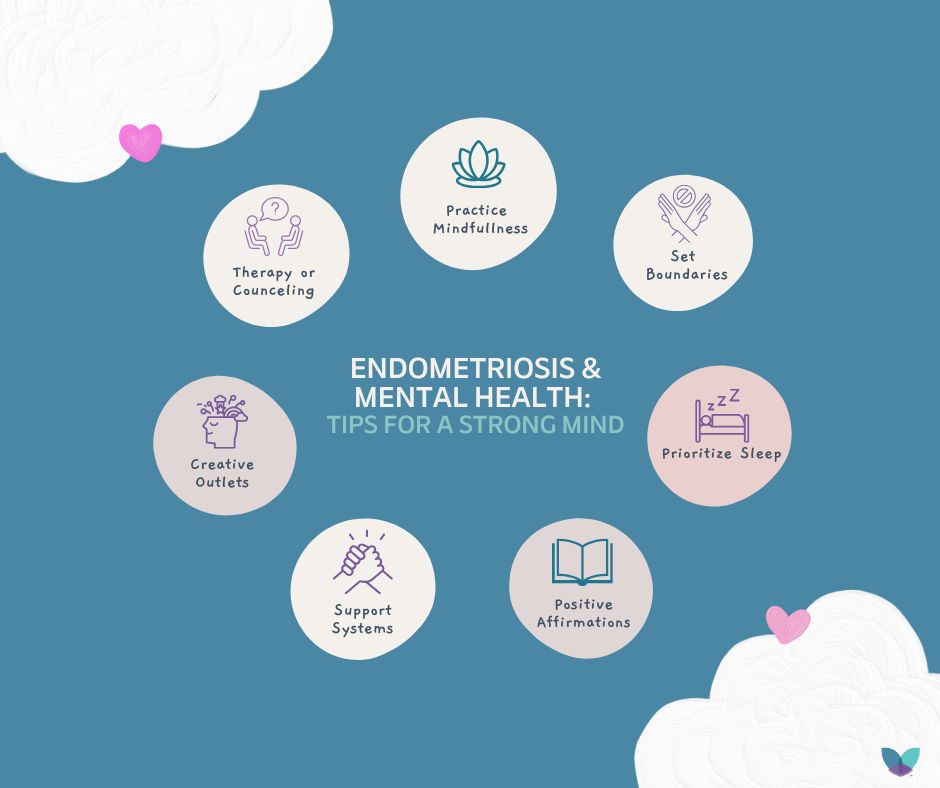Living with endometriosis goes beyond physical pain—it can have a profound impact on mental and emotional well-being. Many people wonder, can endometriosis affect mental health? The answer is yes. Chronic pain, hormonal imbalances, and the challenges of managing a long-term condition can contribute to anxiety, depression, and emotional distress.
If you’ve ever asked yourself, does endometriosis cause mental health issues?—you’re not alone. Studies have shown that those with endometriosis are more likely to experience mood disorders due to the ongoing stress, pain, and inflammation associated with the condition. That’s why prioritizing mental health is a crucial part of your healing journey.
PRM has published research showing that patients who struggle with chronic pelvic pain are actually twice as likely to experience depression – and the NIH reports that 71 to 87 percent of those with endometriosis experience pelvic pain. As a team, we believe in a whole-body approach to wellness. Here are some mental health tips to help you navigate endometriosis and mental health while nurturing your mind and body:

Practice Mindfulness
Mindfulness techniques, such as deep breathing, guided meditation, and gentle movement (like yoga), can help reduce stress and improve your ability to manage pain. By staying present in the moment, you can create a sense of calm and control over your symptoms.
PRM offers a variety of supportive courses. Learn more about our online courses here.
Set Boundaries
Listening to your body is key. Don’t be afraid to say no when you need rest—whether it’s declining social events or stepping away from work obligations. Setting boundaries helps conserve your energy for healing.
Prioritize Sleep
Quality sleep plays a crucial role in regulating mood and improving pain tolerance. Creating a consistent bedtime routine, reducing screen time before bed, and practicing relaxation techniques can help you get better rest.
Use Positive Affirmations
Your mindset matters. On tough days, remind yourself: I am strong. I am resilient. I am more than my pain. Positive self-talk can be a powerful tool in shifting your focus away from frustration and toward hope.
Build a Support System
Having a strong support system—whether it’s friends, family, or a community of others with endometriosis—can make a world of difference. Connecting with people who understand your experience can provide comfort and reduce feelings of isolation.
Consider joining Worthy Warrior, and online community forum for endometriosis patients.
Engage in Creative Outlets
Art, music, writing, or other creative hobbies can serve as a healthy distraction from pain while also improving mood. Finding ways to express yourself can be incredibly therapeutic.
Seek Professional Support
Therapy and counseling can help you navigate the emotional challenges of living with a chronic condition. A mental health professional can provide strategies for coping with anxiety, depression, or feelings of overwhelm related to endometriosis and mental health.
Your Mental Health Matters
If you’ve ever wondered, can endometriosis affect mental health?—know that your feelings are valid. Pain, fatigue, and hormonal shifts can all impact your mood and emotional resilience. But with the right tools and support, you can find relief.

Healing isn’t just about managing physical symptoms—it’s about nurturing your mental and emotional well-being too. You are not alone, and there is support available to help you through this journey.
At PRM, we’re here to support you every step of the way. If you’re struggling with endometriosis and mental health, reach out to learn more about how we can help.
